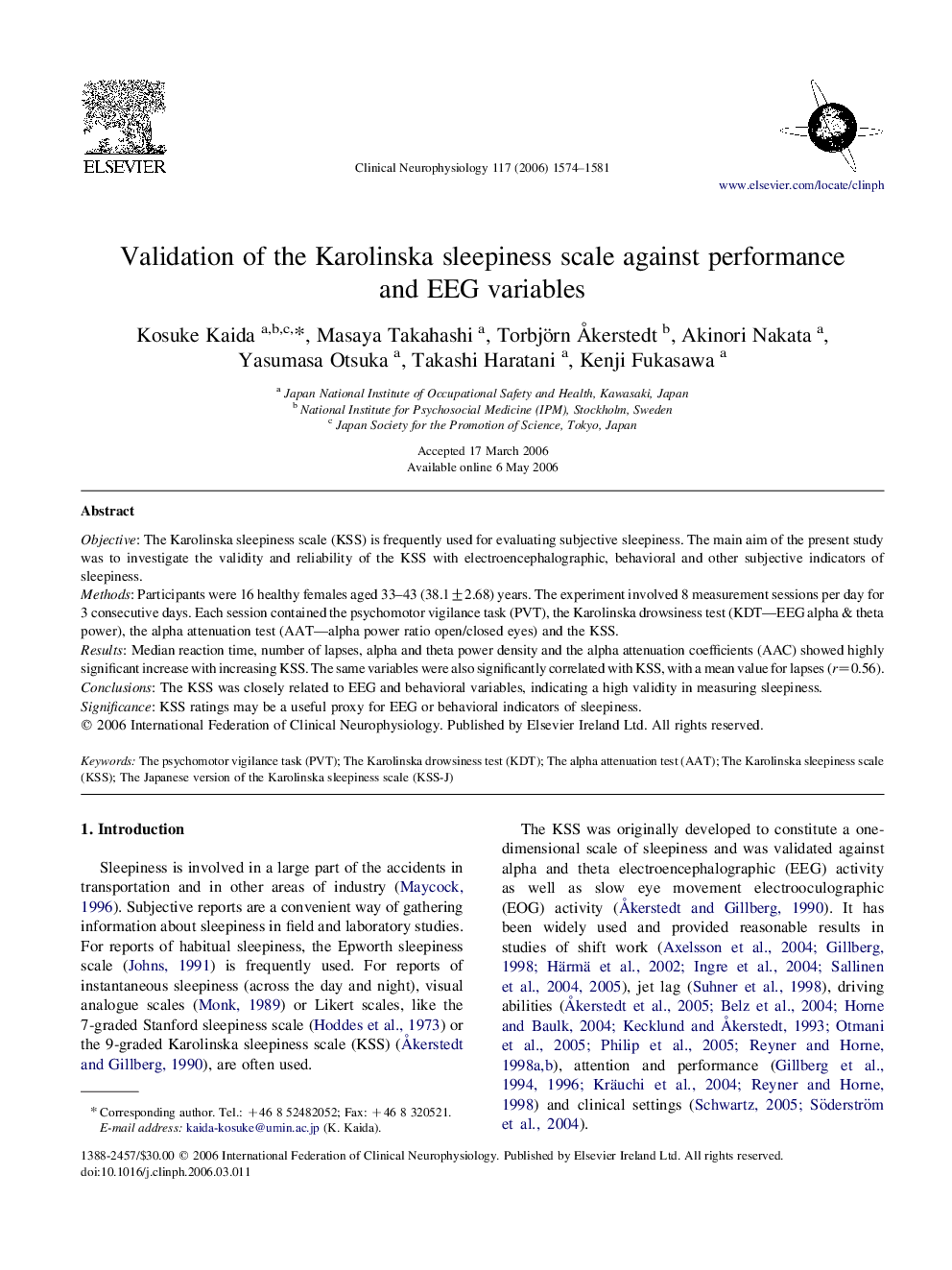| Article ID | Journal | Published Year | Pages | File Type |
|---|---|---|---|---|
| 3048113 | Clinical Neurophysiology | 2006 | 8 Pages |
ObjectiveThe Karolinska sleepiness scale (KSS) is frequently used for evaluating subjective sleepiness. The main aim of the present study was to investigate the validity and reliability of the KSS with electroencephalographic, behavioral and other subjective indicators of sleepiness.MethodsParticipants were 16 healthy females aged 33–43 (38.1±2.68) years. The experiment involved 8 measurement sessions per day for 3 consecutive days. Each session contained the psychomotor vigilance task (PVT), the Karolinska drowsiness test (KDT—EEG alpha & theta power), the alpha attenuation test (AAT—alpha power ratio open/closed eyes) and the KSS.ResultsMedian reaction time, number of lapses, alpha and theta power density and the alpha attenuation coefficients (AAC) showed highly significant increase with increasing KSS. The same variables were also significantly correlated with KSS, with a mean value for lapses (r=0.56).ConclusionsThe KSS was closely related to EEG and behavioral variables, indicating a high validity in measuring sleepiness.SignificanceKSS ratings may be a useful proxy for EEG or behavioral indicators of sleepiness.
